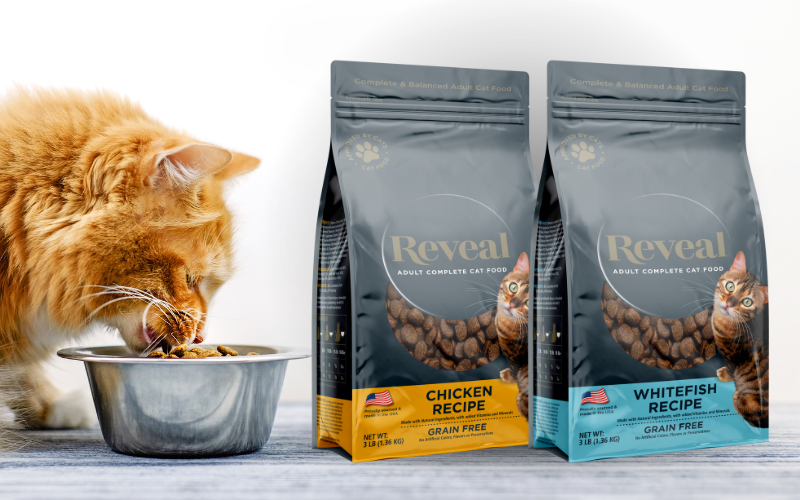Compostable packaging is packaging that biodegrades in a specific amount of time, under specific conditions. It is ideal for packaging that does not need to last long, such as single-use packaging.
When you are composting, you recycle organic material in a way that mimics nature.
However, we have seen an increasing number of pet food products in compostable packaging that claim on their packs that they are:
- 100% plastic free
- Made of ALL paper
- Compostable at home
Established brands supplying pet treats in compostable packaging could well be misleading their customers into thinking their packaging is entirely plastic-free. However, this is a false claim as pet treats contain oils and require barrier properties to protect the contents. These are either bioplastics or other films made from corn starch (such as PLA) or potato-derived polymers, for example. These are still plastic.
Some brands also state that their pouch materials are 100% plastic-free, as the inner layer and seal are made from layers of wood pulp, cellulose and paper that is certified fully compostable and biodegradable. No plastic at all. Cellulose film is a plastic derived from the starch extracted during the pulping of wood. To say that it’s not plastic is totally untrue.
New research
New research has been released, which has led some brands to completely remove compostable plastic from their product line with immediate effect. This is because it has come to light that compostable plastic behaves similarly to regular plastic.
The research, from University College London, has claimed that compostable plastic only breaks down under certain conditions. The research also highlighted that this is “not happening properly and consistently, across local authority facilities or in-home compost heaps”.
Some compostable packaging, particularly used for products such as dog treats, needs a protective layer to keep the food away from harmful contaminants during transit and storage and stop grease and oils from rendering the bag useless.
It’s these layers of plastic that render the packaging unable to decompose as intended.
As a brand, it’s important to be fully transparent with your customers and not be misled to make less sustainable choices to meet expectations from consumers. Educating and being honest with your customers will earn you their loyalty and trust, which will convert into more sales.
Guidance to follow to avoid greenwashing and misleading customers
It’s also important to note the new Competition Markets Authority Guidance to companies about making environmental claims for their products:
The principles are:
- claims must be truthful and accurate
- claims must be unambiguous
- claims must not omit or hide important relevant information
- Comparisons must be fair and meaningful
- claims must consider the full life cycle of the product or service
- claims must be substantiated
So, can bioplastics be the next best thing?
Bioplastics are not the golden key people may think it is either. Some bioplastics can be composted, which is obviously a better option than waiting a few hundred years for them to break down naturally. The problem is that composting bioplastics requires high-temperature commercial composting facilities that are extremely expensive to operate, and there are only roughly 100 of them in the entire country. That is really the only other option for bioplastics, other than landfilling them. In a landfill environment, bioplastics won’t break down any faster than PET plastics, because they require light and air to biodegrade.
Source: Bioplastics: Solution or New Problem? https://www.questrmg.com/2019/08/09/bioplastics-solution-problem/
For reference, if you are wondering what to do with your packaging and if it is more sustainable, please remember the following points:
- Always reduce before recycling
- Degradable does not mean biodegradable – degradable carrier bags from Tesco and Co-op do not compost
- Do not put ordinary plastic bags or degradable bags in a green waste collection
- Look for the compostable logo for materials that can be composted at home
- Compostable packaging cannot currently be placed in your garden or food waste collections, but please check for any alternative collections locally.
To be fully sure that the packaging you’re sourcing is compostable or recyclable, get in touch with us.


